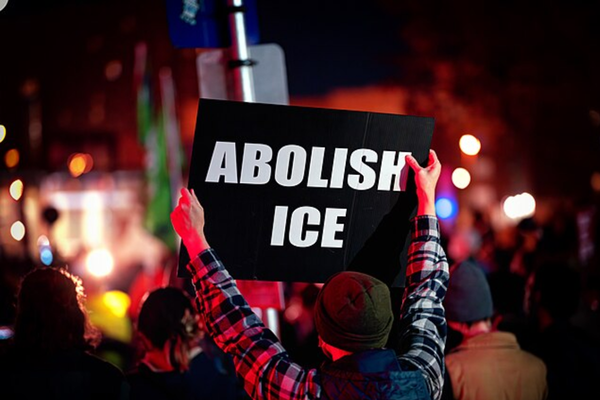Western Sahara is a disputed territory in north-west Africa. It lies south of Morocco, north-east of Mauritania, and west of Algeria. It was formerly known as Spanish Sahara, until Spain’s withdrawal in 1975. The region has since been claimed primarily by Morocco and by the Polisario Front, an independence movement supported by Algeria.
French president Emmanuel Macron officially endorsed Morocco’s 2007 autonomy plan for Western Sahara in a 2024 letter sent to King Mohammed VI. He saw it as a viable solution to a conflict that has lasted nearly 50 years. The plan proposes that Western Sahara be given a high degree of self-governance, but under Moroccan sovereignty.
In protest against this decision, the Algerian government recalled its ambassador to Paris.
Since then several other countries, including the US, the UK, Ghana and Portugal, have also expressed their support for Morocco’s autonomy plan for Western Sahara. This diplomatic realignment marks a significant boost to Morocco’s international standing, while further straining relations with Algeria.
Read more: Morocco using economic clout to strengthen grip on disputed Western Sahara territory
Morocco regards Western Sahara as an integral part of its national territory. The Polisario Front, representing the Sahrawi people of the region, advocates for a referendum on self-determination and independence. This dispute reflects deep-rooted regional geopolitical tensions, competing strategic interests, and the enduring aspiration of the Sahrawi people for autonomy.
Algeria’s support for the Polisario Front raises numerous questions about its underlying motivations. It’s an issue that continues to fuel debate and academic research.
I am a PhD student specialising in diplomacy and international cooperation. In a recent article, I analysed Algeria’s strategic behaviour in response to regional crises, particularly those involving Spain and Morocco.
In this article, I examine the reasons behind Algeria’s support for the Polisario Front and the Sahrawi people’s struggle for independence in Western Sahara.
Historical and ideological factors
Firstly, from both a historical and ideological perspective, Algeria fought a revolution for independence from French colonial rule.
Renowned for its unwavering support for the Palestinian and Sahrawi people, Algeria has a longstanding tradition of solidarity with oppressed populations deprived of their fundamental right to self-determination.
Since independence in 1962, Algeria has achieved an advanced position on the world stage. The principles of Algerian foreign policy play a decisive role in its position on the Sahrawi issue. It continues to work for the right of peoples to make their own choices, strongly supporting national liberation movements such as the Polisario Front.
Read more: Western Sahara: the six-decade struggle to liberate Africa's last colony
This is based on the conviction that all peoples have the right to decide their own future and the right to a referendum without external interference. They have the right to fight against colonialism and foreign domination. Algeria is committed to neutrality and non-interference in the internal affairs of other countries, and to the pursuit of cooperation and mutual assistance with neighbouring countries in accordance with international law.
So Algiers has, for 50 years, contested the de facto annexation in 1975 of the former Spanish colony by Morocco’s King Hassan II, who took advantage of the illness and death of Spanish president Francisco Franco.
Consequently, Algiers supports the Sahrawi cause. For humanitarian reasons, Algeria has hosted tens of thousands of Sahrawi refugees, many of whom live in deplorable conditions. The persistent lack of progress towards resolving the conflict stems directly from the failure to implement UN resolutions on the matter. This ongoing situation remains a significant source of frustration for Algeria.
Geopolitical and economic issues
Furthermore, the geopolitical context is crucial to understanding the Western Sahara issue. A territory rich in fishing grounds and phosphate deposits, Western Sahara is predominantly desert. It has a population of just over 650,000 inhabitants. About half the population is concentrated in the northern city of Laâyoune.
With its extensive coastline, Western Sahara is well suited for fishing. Morocco also aims to develop the port of Dakhla to provide Sahel countries with access to the Atlantic. This aligns with its national ambitions and strategic interests. Additionally, the territory’s primary resource today is its phosphate-rich land – a mineral essential for fertiliser production.
Read more: Morocco will co-host the 2030 World Cup – Palestine and Western Sahara will be burning issues
According to Western Sahara Watch, a pro-Polisario non-governmental organisation, Western Sahara exported 1.6 million tonnes of phosphates in 2023. This represents 8% of Morocco’s total exports.
Morocco itself is a key player in the phosphates sector. It alone accounts for 20% of global production, ranking second behind the US.
This is one of the factors that have intensified the longstanding rivalry between Algeria and Morocco. Algeria uses this dynamic to counter Morocco’s regional influence and to reinforce its own position as a leading power in the region.
National security and regional rivalries
Moreover, the normalisation of Israeli-Moroccan relations in 2020 under the Abraham Accords has influenced Algeria’s security outlook. Morocco has enhanced its military capabilities through acquiring advanced Israeli technology and weapons systems. Algeria feels strategically encircled, given Israel’s relations with several of its neighbours.
This is perceived as a direct threat to Algeria’s national security and is amplified by the intensifying rivalry between Algeria and Morocco. The situation is especially sensitive given Algeria’s support for the Polisario Front.
By supporting the Polisario Front, Algiers exerts influence over the situation in the region. It also applies pressure on Morocco to reconsider its role on the international stage.
Read more: What Mandela and Fanon learned from Algeria's revolution in the 1950s
So, for Algeria, support of the Polisario Front can also be explained by a desire to maintain its regional and international influence and to stand firm against external threats.
As a result, Algiers firmly maintains its position on the Sahrawi issue. It is unwavering on the issue, based on principles it considers fundamental for the region and beyond. These include the right to self-determination, respect for borders inherited from colonisation, support for the right of peoples to resist occupation, and respect for international law and multilateralism.
Manel ismahane Rebbah does not work for, consult, own shares in or receive funding from any company or organisation that would benefit from this article, and has disclosed no relevant affiliations beyond their academic appointment.
This article was originally published on The Conversation. Read the original article.







